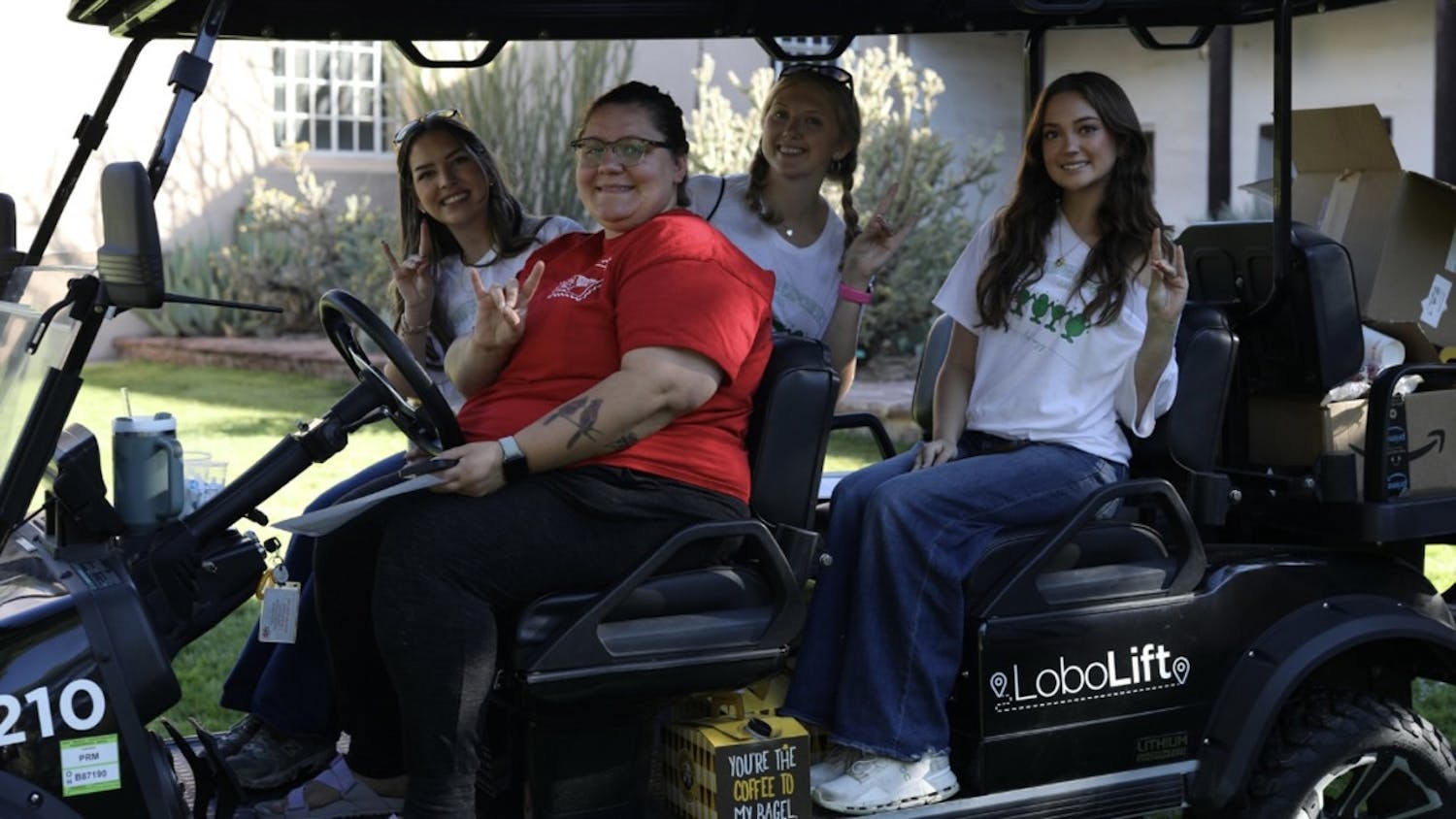A lecture on Thursday morning by a visiting UNM professor covered the history of informatics, but it’s his beginning work in general internal medicine that laid the groundwork for national standards today.
“A lot of internal medicine in the past 50 years has been diagnose and give them some pills, right?” said Stuart Nelson, who works in the UNM Health Sciences Library and Informatics Center.
Nelson was one of the original designers of the Unified Medical Language System — a vast treasure trove of vocabulary for biomedical sciences.
Nelson was head of Medical Subject Headings at the National Library of Medicine, where he reconstructed MeSH into a concept-oriented vocabulary, and came up with the national standard for discussing prescription drugs.
“Today, if you were to talk to the researchers in the various departments, all of them use tools that were developed in or have been used in medical informatics,” he said.
Nelson was invested in informatics before the term was even coined. Informatics, as defined by the New Oxford American Dictionary, is “the science of processing data for storage and retrieval.”
“When done correctly, you can demonstrate that using a computer application helps you remember things,” Nelson said. “When done correctly, that’s a big proviso, because a lot of stuff is done very poorly.”
While conducting research, Nelson continued to see patients. He described a typical day for a doctor as typically having very limited time to see patients with multiple issues.
“You forget that this patient needs a flu shot, or you’ve been giving this patient a drug, and there’s another drug that has a serious interaction with it that the patient is taking,” Nelson said. “All these kinds of things, the computer can recognize and help you with. Informatics directly affects that.”
Nelson cited his friend and colleague Clement McDonald, who wrote an essay titled “The Non-Perfectibility of Man.”
“He could set up a thing of reminders for individuals and it would clearly improve their performance,” Nelson said. “They would go from doing things 20 percent of the time to over half the time. But then if you took away the reminders, they go back to the 20 percent. The reminders need to be there all the time.”
In his lecture, Nelson went through four major themes throughout the history of informatics, and also gave his take on the proper use of man and machine.
Get content from The Daily Lobo delivered to your inbox
“I think a man plus a machine is more than the man and is more than the machine,” Nelson said. “They can work cooperatively and effectively.”
A major problem today, according to Nelson, is that all medical records are geared towards billing.
“The records systems are lousy. People are not careful about recording their observations and codes and so forth. Its pretty messy stuff,” Nelson said. “You’re not a data scientist, until you know how to be a data janitor.”
Another issue, according to Nelson, is overdoing alerts to doctors which can cause loss of potency.
“One of the things that happens today is the alert fatigue. Doctors just click through everything,” Nelson said. “‘Get this stuff off my desktop, I don’t want to see it anymore.’ They’re just burned out with it. But does it have great potential? In that regard, yes.”
Currently, Nelson and his colleagues have been analyzing the characteristics of people who frequently make visits to the emergency room.
“What’s the characteristics of those individuals? Can you predict who will be coming in more frequently? And what’s the intervention?” Nelson said. “This is what they call analytics. Analytics in medicine is just beginning.”
Nelson said over the past half-century, healthcare pioneers have been focused on the small molecule and its use in medicine; now it’s biologicals, and the future holds precision medicine.
“This whole idea of precision medicine, could be the next 40 years of medicine,” Nelson said. “Most of the applications of precision medicine is in cancer right now. It needs to be in everything.”
In terms of how medicine will be practiced, Nelson said the future will look extremely different.
“What’s going to happen, socially and politically, with the incredible cost of medical care these days is a different question,” Nelson said. “I spent a lot of my time taking care of patients who had no money and no insurance and it’s a sad thing to see.”
Sarah Trujillo is a news reporter for the Daily Lobo. She can be reached at news@dailylobo.com or on Twitter @sarahtweets_abq.





